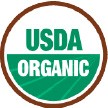Philippine Coconut Market Newsletter UK & Global Coconut Markets Update July 14 2025
July 14, 2025
Coconut Oil Prices Show Resilience Despite Volatile Market Conditions The international coconut oil market showed…
So, what does 2023 hold for desiccated coconut and coconut oil prices, along with prospect supply issues?
Like always, the edible oil complex is heavily affected by the principal oils of Palm Oil and Soya, along with the smaller players of rapeseed and Sunflower. Whilst I would not usually comment on other oils, the current conflict in Ukraine obviously has a big impact on the Sunflower market since Ukraine and Russia make up the world’s largest suppliers. In 2022 we saw spillover demand in Palm caused by the supply issues with Sunflower. Will this continue in 2023? This will all depend on the expected supply this year which, of course, the war and sanctions are hampering.
Palm Oil prices have started the year hovering above the $4,000 level pulled up by the reopening of China, which is seen as possibly pushing demand up, but then lower crude prices are limiting potential biofuel demand, so limiting the upside. Supply-side Palm Oil is expected to have a good 2023 with improving weather and fewer labour issue than in 2022. Will demand in 2023 increase, or will the possibility of recessions in North America and Europe hamper demand for edible oil? Europe has moved to try to ban Palm Oil imports from non-sustainable sources, but we are yet to see how this impact the market, either demand or prices.
The supply for desiccated coconut remains pegged to be good this year, with weather favourable in all growing regions. Sri Lanka is now in a lean harvest point. They also have some significant labour shortages along with low prices, which means that desire to harvest raw nuts could be better. As a result, they are charging a premium over other origins. Prices in Indonesia are up slightly as first-week buying has seen buyers picking up nearby shipments to fulfil any gaps they have. Will we see Philippine prices rise in the run-up to the Chinese New Year and in the week or two following?
Demand. 2023 looks likely to be a recession year for North America and Europe. Already in 2022, during Q3 to Q4, we saw a demand dip for food commodities caused already by spiralling inflation and a dip in consumer confidence. 2023 has started in the same vein with increasing interest rates and taxation, so likely that demand will remain lower than in previous years. It is yet unclear when this might abate and demand will return to a more normal level.
Why not subscribe to receive the latest market news straight to your inbox to clinch the best deal!
July 14, 2025
Coconut Oil Prices Show Resilience Despite Volatile Market Conditions The international coconut oil market showed…
July 7, 2025
Coconut Oil Markets Face Continued Pressure Despite Recent Stability The coconut oil market showed mixed…
June 23, 2025
Global Coconut Market Update: Price Pressures and Supply Dynamics The coconut oil market experienced notable…
June 16, 2025
Rotterdam coconut oil prices closed higher last week, with sellers quoting $2,637.50 to $2,790 per…
June 9, 2025
Coconut Oil: Buyers Quiet as Prices Slip Slightly In the Rotterdam market, coconut oil prices…
June 2, 2025
Desiccated Coconut: Prices Steady, But Export Volumes Down Export prices for desiccated coconut held steady…
If you require technical information about our products, then please login here to access the most up to date information...
Let's take a look at this...









